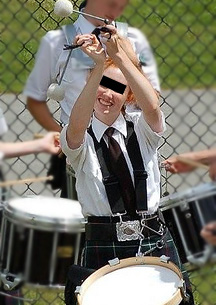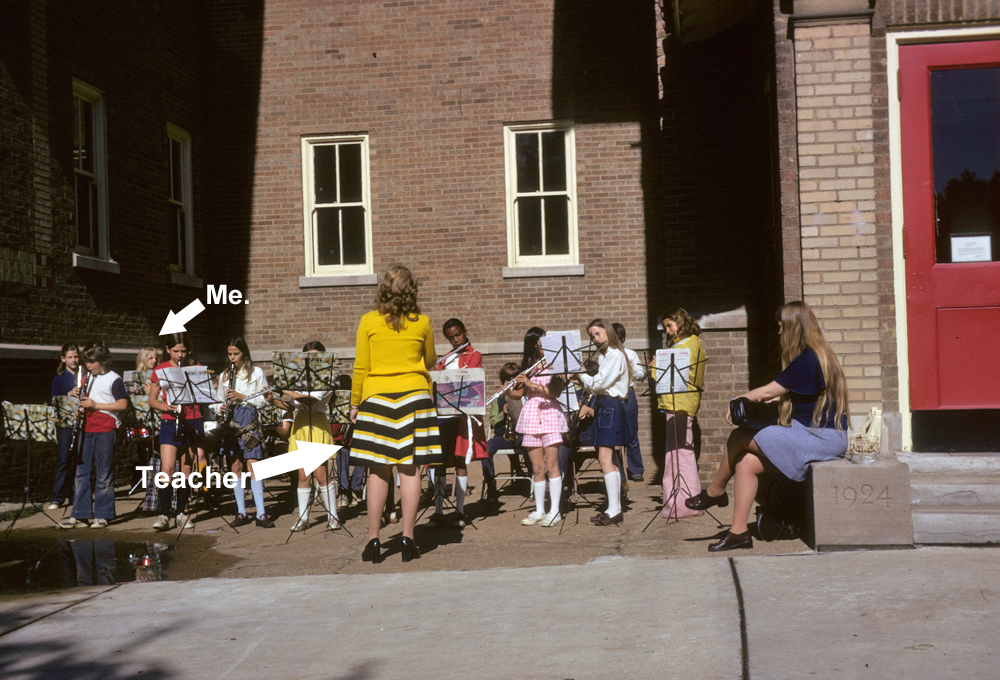Personality crisis
 I’m pretty sure I know the main reason why competitive pipers and drummers are so often in disagreement about our avocation: it’s about a clash of two distinct types of personalities: it’s the creative versus the analytical.
I’m pretty sure I know the main reason why competitive pipers and drummers are so often in disagreement about our avocation: it’s about a clash of two distinct types of personalities: it’s the creative versus the analytical.
The current pipes|drums Poll asks, “What do you like most about piping/drumming?” and readers can answer one of either “The creativity,” or “The competition.” It’s an admittedly unscientific attempt to determine how many of us are drawn to the artistic or the analytical sides of what we do. And polling shows that we’re 50/50. (Actually, about 52% chose “the competition,” but chances are the creative types are bending the polling rules, while the analyticals rigidly stick to them, because that’s what they do.)
We are involved in competition that uses art as sport and this has forever caused friction. We attempt to create “rules” to more equitably assess what piper or drummer or band wins a purely subjective event.
Take for example the recent stramash over Bagad Brieg’s six-second time overrun in their medley in the Grade 2 qualifying round at this year’s World’s. The error was either missed altogether or intentionally overlooked, and the band went on to compete in the Final, finishing third and winning the drumming.
In the ensuing discussion on the matter (during which,notably, both Brieg and the RSPBA have been deathly silent), opinions seemed to be split along 50/50 arty vs. anal divides. Those drawn to the artistic side more than likely couldn’t care less about such a perceived impropriety. “Six seconds? Who cares? They deserve the prize.”
The analytical folks who are drawn first to the competition side of our thing, are spitting with outrage that a band could be allowed to get away with such an infraction. “Even it were one-second – throw them out!”
It’s a fascinating case study in the tension we face at every competition, due much to different essential personality types. The artistic creators are in need of a platform for their art, and often settle for the competition stage. The serious composers more often than not become worn down eventually by competition and rules being placed on their creations. They might continue to compete, but in their hearts they probably don’t much care about the result.
The competitive analytical types just want to compete and get a result based on “the rules.” They don’t care much about what they play, only playing it well enough to win. They struggle with a judge liking something for purely subjective “musical” reasons, seeming to ignore pseudo-objective criteria like tone, attacks and time.
And inartistic analyticals seem to gravitate to bureaucracy. They love joining associations and gaining power so that they can create and uphold rigid rules. They’re often not even pipers or drummers, and instead are enthusiasts drawn in by sons or daughters doing the playing.
As with everything, there are exceptions. I admit that these are generalizations. But I think there’s something to this essential struggle of personality types. Look around and see what the rule-sticklers do for a living. More often than not they’re in professions that involve numbers and black-and-white yes/no options. The artistic types are usually in jobs that require flexible creativity. And if each type is unhappy about their work, it’s often because they’re doing something that doesn’t match their personality.
Arty readers will likely see this as an interesting take on our struggle, even if they don’t agree. The analyticals probably enjoyed the stats in the second paragraph but never got past the third.














 The
The 
















 Every ecosystem reacts to foreign invaders. Earthly things merrily exist in their particular environment, change occurring over eons and epochs in Darwinian sloth . . . then suddenly a bunch of things come off a jet plane and all hell is unleashed.
Every ecosystem reacts to foreign invaders. Earthly things merrily exist in their particular environment, change occurring over eons and epochs in Darwinian sloth . . . then suddenly a bunch of things come off a jet plane and all hell is unleashed. Coincidental to the “
Coincidental to the “
 Why is it that there are relatively few examples of pipers and drummers who achieve or exceed the greatness of their famous piper or drummer parents? More often than not, piping and drumming seems to be a one- or two-generation thing in families, with children not taking it up and starting a tradition.
Why is it that there are relatively few examples of pipers and drummers who achieve or exceed the greatness of their famous piper or drummer parents? More often than not, piping and drumming seems to be a one- or two-generation thing in families, with children not taking it up and starting a tradition. A few days ago I posted a tweet on Twitter (@pipesdrums) or status update on
A few days ago I posted a tweet on Twitter (@pipesdrums) or status update on 